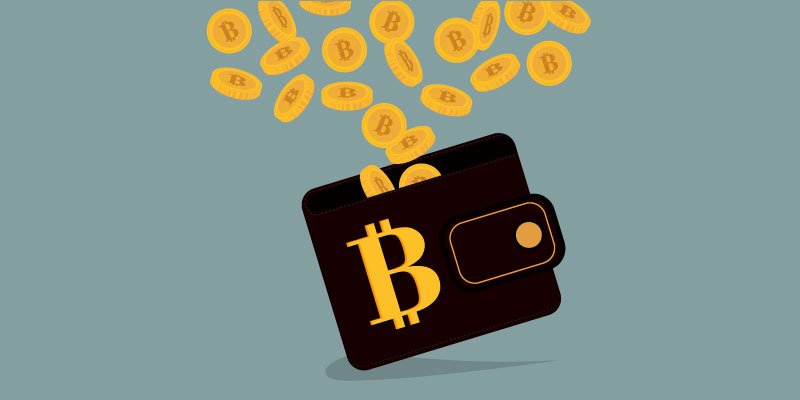Bitcoin is a type of digital currency in which encryption techniques are used to regulate the generation of units of currency and verify the transfer. P2P network-based virtual currency that is traded online and exchanged into currencies. When paired with third-party services, allows users to mine, buy, sell, or accept bitcoins from anywhere in the world. The offer of transactions with relative anonymity is a significant financial power and brings changes to the future payment systems. Transactions are made with no banks interfering, so there are no transaction fees. More merchants are beginning to accept them. Every-one can buy services, goods but also criminals have a way to transfer very their in-come from illicit activities completely anonymously. While Bitcoin developers maintain Web sites providing guidance to the Bitcoin community, they do not have a centralized database or authority.
The Future of Bitcoin
Bitcoin will never be successful as a currency, nor does it have any potential of ever becoming a mainstream “money” for several reasons. If the currency of a country fluctuated at the rate of bitcoin, it would never be acceptable as a medium of exchange in the global market. How can one conduct a business transaction when an item that is worth ten dollars today is worth twenty tomorrow. A currency needs some sort of stability, needs to be controlled by a higher power in order to work. The main point of bitcoin is the fact that it cannot be destabilized by any government institutions. Bitcoins don’t behave like a currency at all. In terms of value it appears to be more of a unpredictable commodity. Bit coin was made to be used like a currency in the sense that it is easy to pay for goods and services, especially in foreign countries.
Bit coin was designed to solve a major problem in online transactions. As of right now there is no way to sell a service online to a large fraction of the world’s population for a payment because of all the different currencies and exchange rates. Also transaction costs are high. With bitcoin this can all be avoided. It was meant to be the ‘Lingua Franca’ of online commerce. This however is impossible because while it is a currency, it is a commodity as well only governed by the rules of scarcity. This brings huge issues especially due to the minicule size of the Bitcoin market. There is not enough bitcoins around to serve the purpose of all the daily transaction’s taking place in the global market. Although currently there is a huge buzz going on about bitcoin, the total value of the market as a whole is only worth around two thousand gold bars, not even close enough to revolutionize the global payment and currency system as we know it. On a good day, the total trading volume for bitcoins is around 20 million dollars. Compared to the global currency markets, i.e dollars, pounds, euros, the bitcoin figures don’t even make up a rounding error in those markets. The foreign exchange market trades around four trillion per day, approximately two hundred thousand times that of bitcoin. To top it off, there is not a substantial amount of bitcoin traders in the market at all. The absence of a reliable source of liquidity i.e bank, or trading house means that if you did want to sell or get rid of your bitcoins, it wouldn’t be easy.
The final and most important factor leading to the unsuccess of bitcoin is its economic implications. If bitcoin did succeed it would ultimately fail. If the bitcoin did become a mainstream money, the soaring value of bitcoin would be cataclysmic. It would result in a hyper-deflation. For an example, a golden bar valued at $600,000. Sixty dollars/ BTC the value of that bar is 10,000 BTC. Now imagine that the value of the bitcoin continues to rise in value to $600 apiece, then $6,000, and then to $60,000 which would have to happen if the fixed number of bitcoins was being used to store hundreds of billions of dollars in value. Then the value of the gold bar would plunge, in bitcoin terms – 1,000 BTC and then 100 BTC and finally just 10 BTC. The same pattern would follow and affect all the markets in the world including the value of goods and services as well as your salary. The value of everything purchasable by bitcoins would plummet.
Deflation is horrible for the economy. During deflation, members of the economy do not spend money, because any purchases you want to make will become cheaper as the days pass, so what you buy today will be cheaper tomorrow and so on. Cash is saved, and only spent on necessities. Job security as well as employment rate would drop because it would be wasteful to hire./ spend money on labor when there is no purchases for the products or services being offered from businesses. This would be defined as a depression. The economy would completely slow down with minimum activity. For the economy to grow and prosper there must be monetary growth, which would be impossible to achieve with a bitcoin based system. Successful currencies such as the dollar can be printed by central banks at will in order to keep the economy active and flowing, regardless of the amount of gold in the federal reserve, it is a full proof system designed to keep the economy active even in times of hardship. Bit coins are a commodity comparable to gold and cannot fund and sustain the purchases and transactions of the global economy.
